- Home Page
- Company Profile
-
Our Products
- Industrial Cartridge Filters
- PP Yarn Wound And Spun Bonded Filter Cartridges
- Sintered Filter Disc and Knitted Mesh Pack
- Micro Perforation Filter Cartridges
- Sintered Spargers Filter Elements
- Sintered Bronze Filter Cartridges
- Wedge-wire - Slotted filter Cartridges
- Sintered SS316L Powder Filter Cartridges
- Bag Filter Systems For Liquid Filtration
- Conical Type Strainers and Strainers Elements
- Y And T Type Strainer
- Vent Filter and Conical Filter
- Root Blower Air Filter System
- Single and Multi Bag - Basket Filter Systems
- Catalayst Recovery Filter System
- Skid Mounted and Stage Type Filter Systems
- Duplex Filter System
- Multi Cartridges Filter Housing
- High pressure Filter Systems
- PP- PTFE -PVDF Lined Metallic Filter Housings
- MS PP-PFA-FEP Lined Filter System
- PP- PTFE -PVDF Strainers And Elements
- Safe Change Filter System
- BIBO Filter System
- Polypropylene Filter Housings
- HDPE Filter Housing
- Polycarbonate Filter Housing
- FRVE Filter Housing
- FRP Filter Housing
- Primary Air Intake Filters
- Woven Mesh and Sintered Multi Layer Filter Cartridges
- Filter Assemblies and Spare Parts
- Sparkler Filter
- Sintered Bronze Filter
- Gas Turbine Air Intake Filters
- Screen Filters
- Coalescing Filters
- Wedge Wire Filter Element
- PTFE Membrane Filters
- Air Pre Filter
- Self Cleaning Filter
- Self Cleaning Water Filter
- Disposable Filter Cartridges
- Industrial Water Filters
- Duct Mounted Panel Air Filter
- Dust Collecting Equipment
- Dust Collection Filter
- Bag In Bag Out Filter
- Compressed Air Filters
- Metal Filters
- Basket Filters
- Basket Strainer
- Industrial Basket Strainers
- Metallic Filter Housing
- Bucket Strainer
- Polishing Filter
- Gas Filtration Equipment
- Air Filtration Systems
- Sterilizing Air Filter
- Air And Gas Filter
- Pneumatic Filters
- Sintered Hastelloy Filter Cartridge
- Micron Filters
- Industrial Filter Cartridges
- MS Lined Cartridge Filter
- Porous Ceramic Filter
- Filter Media Pad
- Filter Disc
- Pocket Filters
- Panel Filter
- Pre Filter
- Cylindrical Strainer
- Filtration Equipment For Power Plant Industry
- Filtration Equipment For Textile Industry
- Filtration Equipment For Pharmaceutical Industry
- Hastelloy Filter Housing
- Hydrogen Peroxide Filter
- Vacuum Filters
- Cleanable Filter Elements
- SS Wire Mesh Filter Element
- S.S Wedge Wire Filter Element
- Sintered Bronze Filter Elements
- Sintered Sparger
- White Bicomponent Thermally Bonded Filters Cartridge
- High Pressure Air Filter
- Duplex Cartridge Filter
- SS Fabricated Filter Housing
- SS Cartridge Filter Housing
- Inline Filter Housings
- Bag And Cartridge Filter Housing
- Liquid Filter Housing
- SS Filter Housing
- PP Molded Filter Housing
- SS Bag Filter Housing
- Pharmaceutical Filter Housing
- BIBO Filter
- Oil Filtration Plant
- Bag Filter Housing
- Micron Cartridge Filter Housing
- High Pressure Filter Housing
- Multi Cartridge Filter Housing
- Filtration Plant
- Air Filter Housing
- Powder Coating Cartridge Filters
- Industrial Filter Housing System
- Self Cleaning Steel Filter
- PFA Lined Filter
- Duplex Filter
- Low Pressure Filter
- Liquid Filter
- Gas Filter Housing
- Filter Cartridges
- SS Filter Cartridge
- Sintered Powder Filter Cartridges
- Resin Bonded Filter Cartridges
- Yarn Wound Filter Cartridges
- Zeta Filter Module
- Resin Bonded Acrylic Fiber-Cellulose Filter Cartridges
- Capsule Filter Cartridges
- Absolute Pleated Filter Cartridge
- Pleated Paper Air Filter
- Sintered Ceramic Filter Cartridges
- Sintered Polymer Filter Cartridges
- Sintered PP Filter Cartridge
- Portable Filter Housing
- Sintered SS 316L Non-Woven Fiber Filter Cartridges
- Filters-Metal Mining & Refineries
- Filter Bags
- Filter Media
- Filter Housings
- Washable Filters
- Basket Filter Strainer
- Catalyst Recovery System
- PTFE Lined Fittings
- Culinary Steam Filter
- Water Demineralization Plant
- Air and Liquid Filter
- Industrial Cartridge Filters
- Applications
- Contact Us

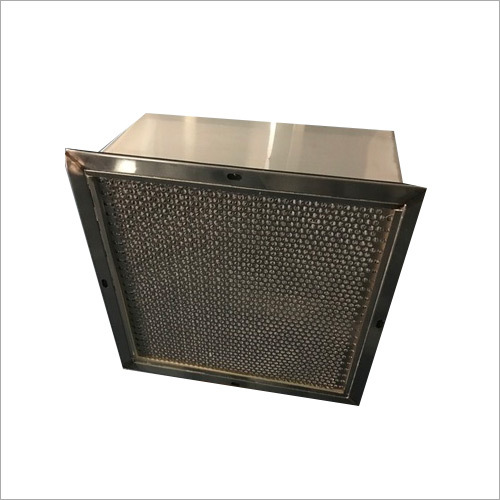
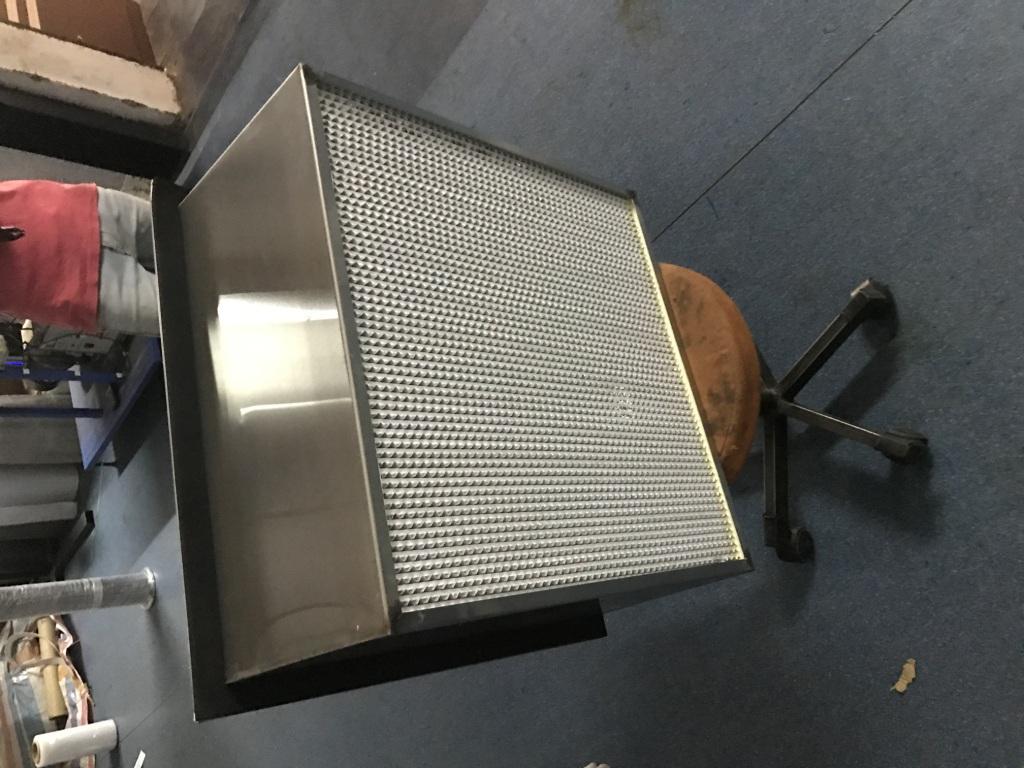
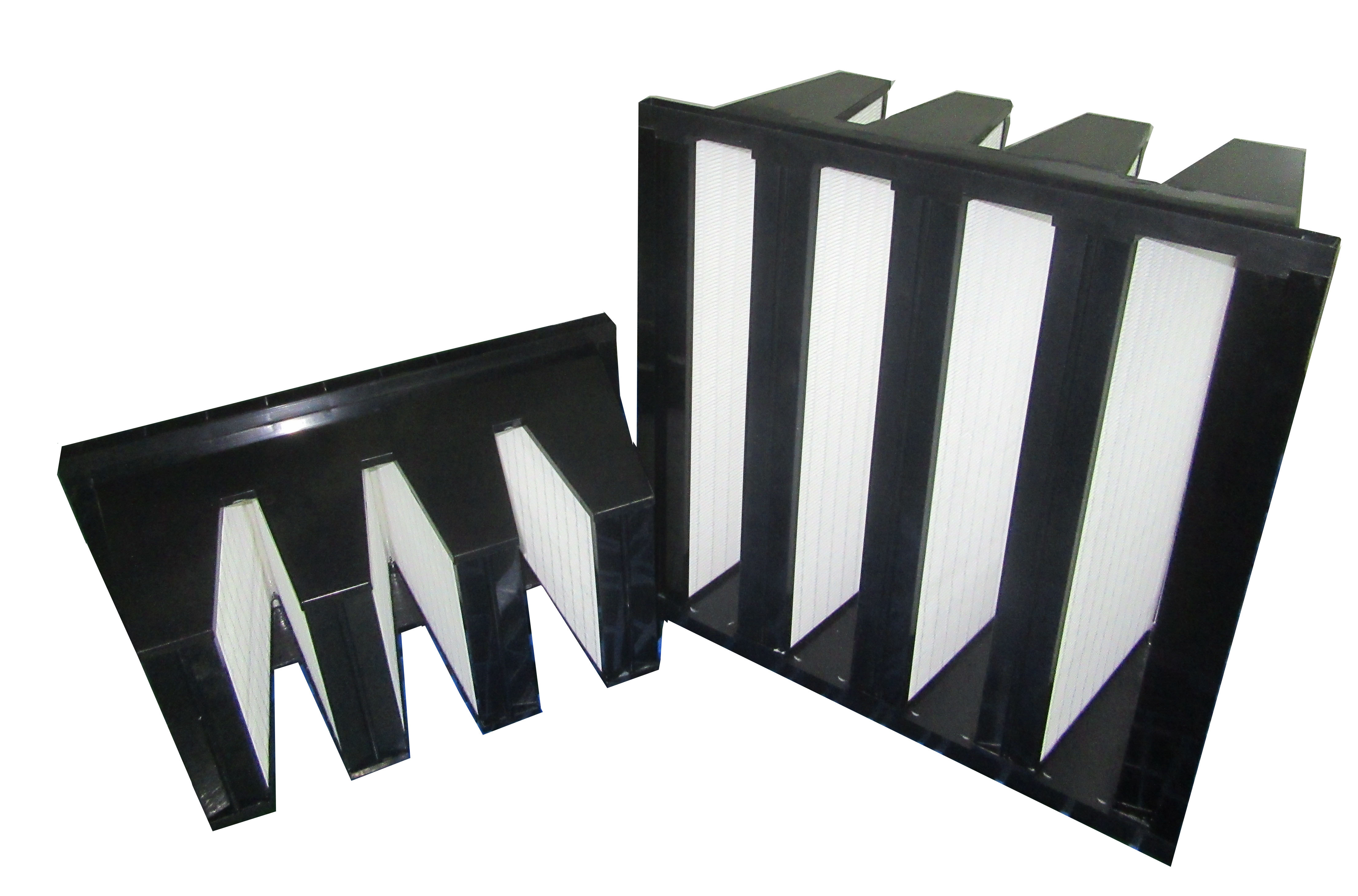
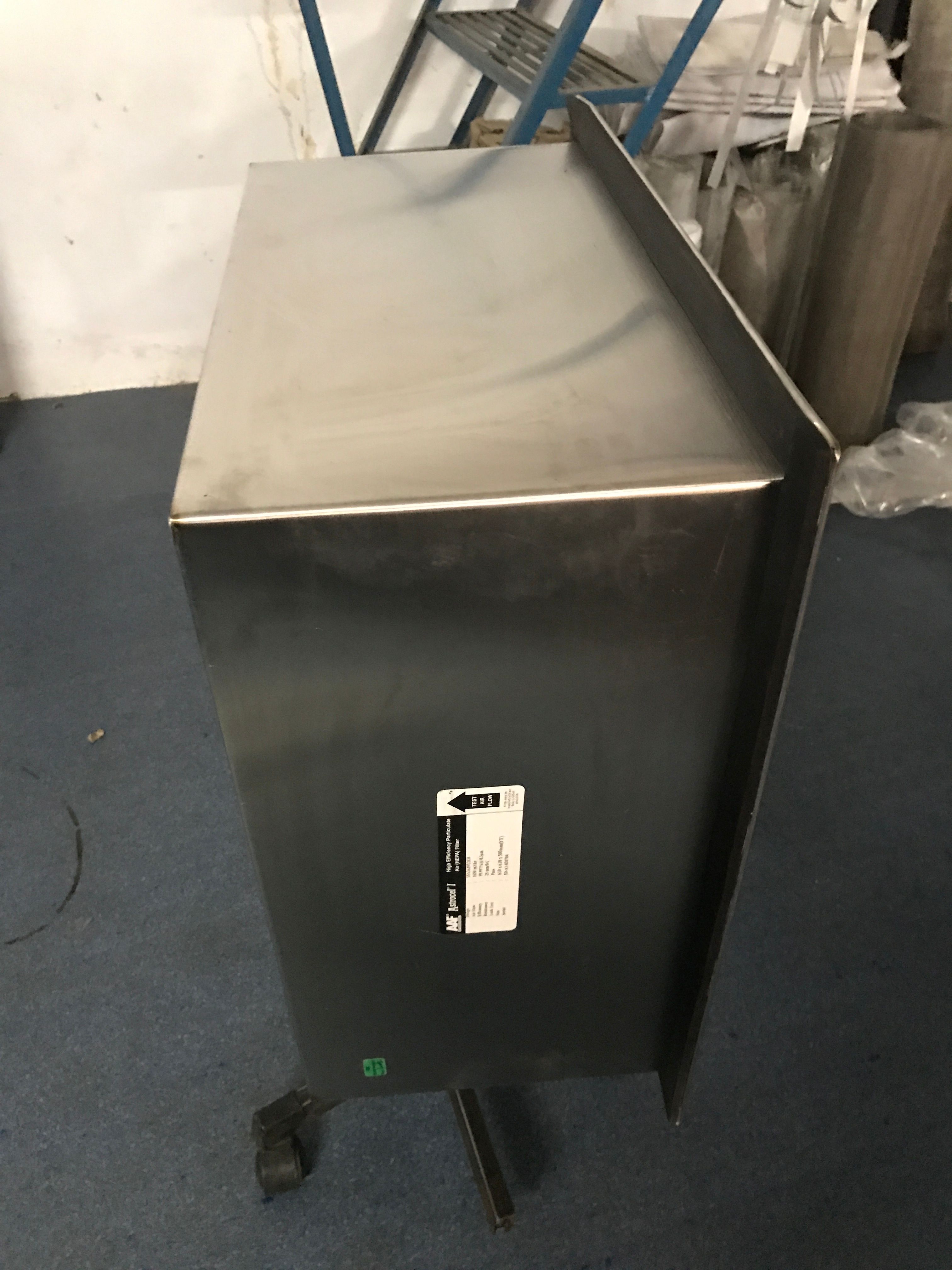
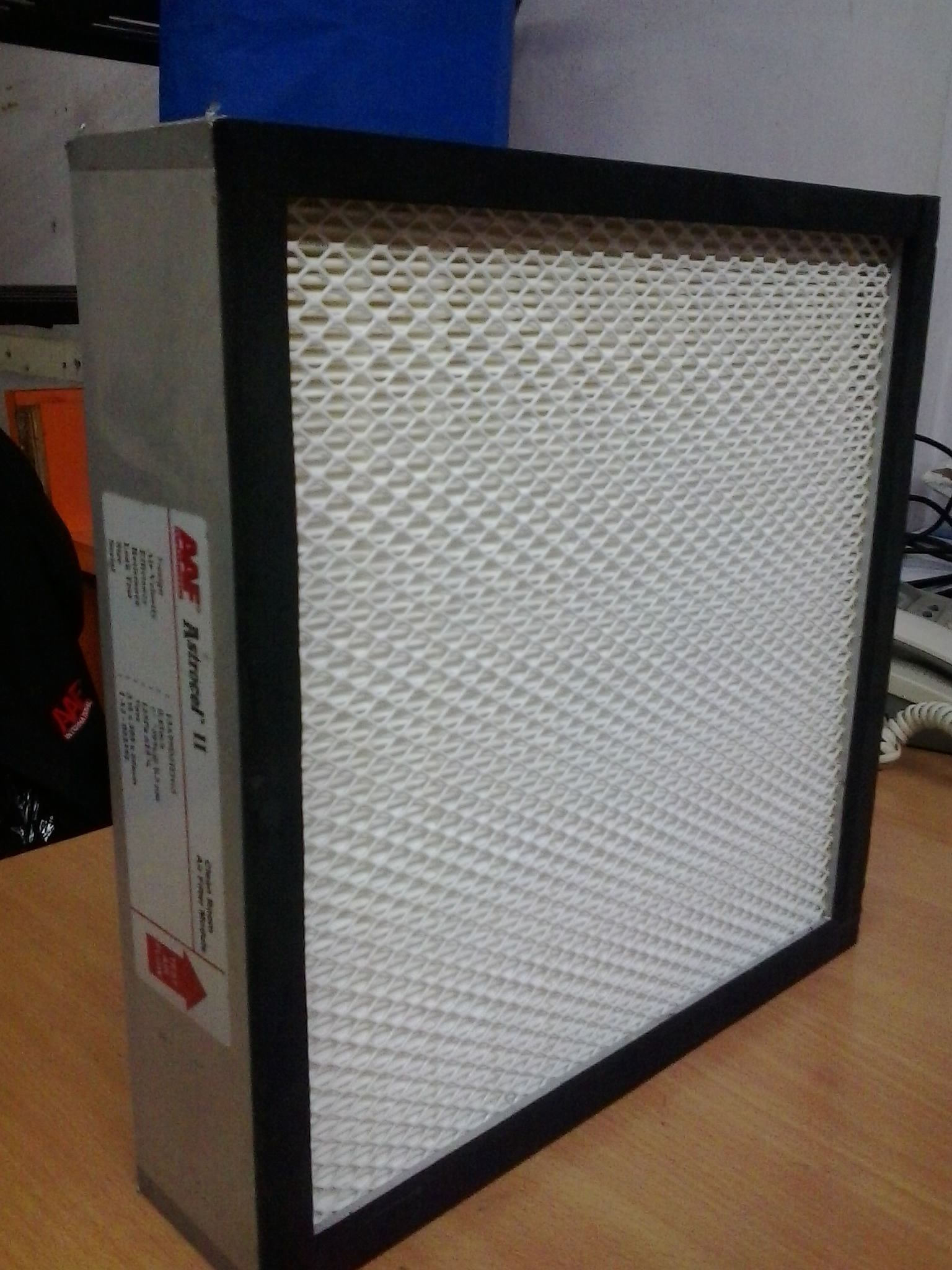
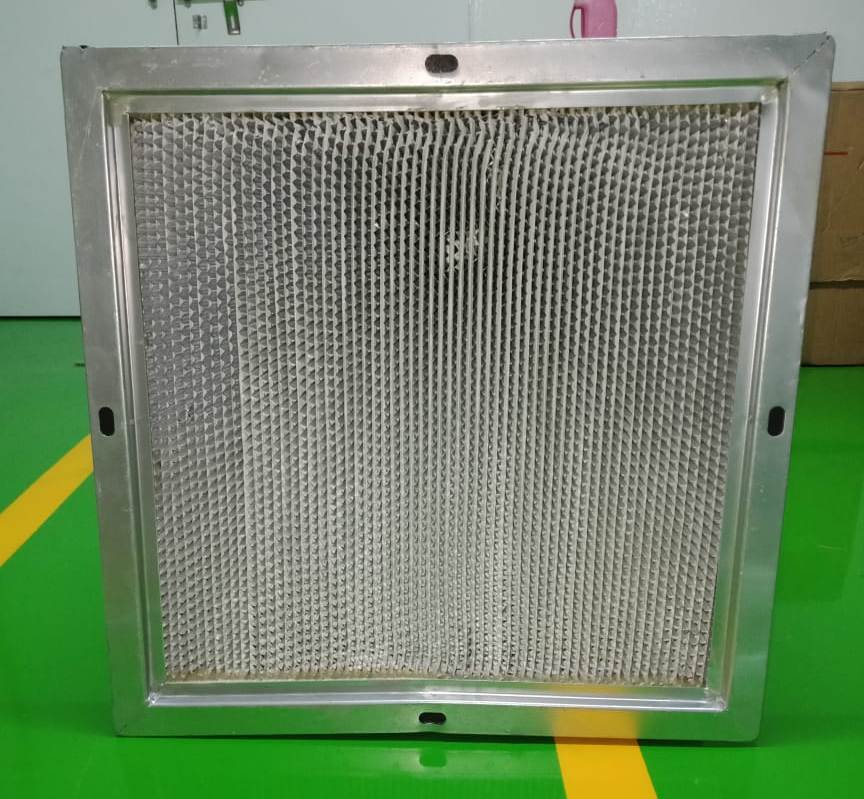
HEPA Filters
5200 INR/Piece
Product Details:
- Color Grey
- Usage Pharma
- Product Type Air Filter
- Size Customized
- Efficiency (%) 99.97%
- Click to view more
X
HEPA Filters Price And Quantity
- 5200 INR/Piece
- 5 Piece
HEPA Filters Product Specifications
- 99.97%
- Grey
- Pharma
- Customized
- Air Filter
HEPA Filters Trade Information
- Ahmedabad
- 400 Piece Per Month
- 7 Hours
- If order is confirmed we will reimburse the sample cost
- All India
Product Description
HEPA Filters are largely brought in use number of commercial applications, and further these are also used for the medical purposes, as well as in the high-tech industries such as aerospace accompanied by the integrated circuit manufacturing. Apart from that these are also used in the automobile as well as in the aircraft industries. If we expand HEPA, then it be explained as the high-efficiency particulate air which is a kind of mechanical air filter that works by forcing the air through a very fine mesh which traps the harmful particles like pollen, dust mites, pet dander, and also tobacco smoke. One can easily find the HEPA filter in most of the air purifiers.
High Efficiency Particulate Air Filter Advantages:
1. HEPA products filter air leads to the circulation of a very fine level and quality of air.
2. The blocking elements which are 0.3 microns or larger can easily be captured and sorted as well.
3. These filters are famed for catching up the germs or pollutants up to 99.97 percent of all particles.
4. The product is highly efficient especially when it comes to eliminate the particles present in the air in comparison to the fluids.
Uses of HEPA Filter:
HEPA (High Efficiency Particulate Air) filters are a type of air filter that is designed to trap and remove very small particles from the air. They are commonly used in a variety of applications to improve air quality by removing particles such as dust, pollen, pet dander, smoke, and airborne pathogens. Here are some common uses of HEPA filters:
1. Air Purifiers: HEPA filters are often used in standalone air purifiers to remove particulate matter from the air, which can help reduce allergens and improve indoor air quality.
2. HVAC Systems: Many modern HVAC (Heating, Ventilation, and Air Conditioning) systems include HEPA filters to improve indoor air quality and protect the system's components from dust and debris.
3. Cleanrooms: These filters are critical in cleanroom environments, such as those used in pharmaceutical manufacturing, electronics manufacturing, and medical device production, to maintain a controlled environment with minimal contamination.
4. Hospitals: HEPA filters are used in hospitals to create sterile environments in operating rooms and isolation units. They also help prevent the spread of airborne diseases.
5. Laboratories: These filters are used in laboratories to maintain particle-free conditions for experiments and research that require a controlled environment.
6. Aerospace: In the aerospace industry, HEPA filters are used in cleanrooms to prevent contamination of sensitive equipment and components during the manufacturing process.
7. Automotive: Some high-end automotive cabin air filters use HEPA technology to improve the quality of air inside the vehicle, reducing exposure to pollutants and allergens.
8. Residential and Commercial Vacuum Cleaners: HEPA filters are commonly integrated into vacuum cleaners to capture and trap fine dust and allergens, preventing them from being released back into the air.
9. Biological Safety Cabinets: HEPA filters are used in biological safety cabinets to provide a sterile environment for handling biological materials.
10. Nuclear Power Plants: These filters are used in nuclear power plants to trap radioactive particles and prevent their release into the environment.
11. Pharmaceutical and Food Processing: HEPA filters are used to maintain sanitary conditions in pharmaceutical and food processing facilities, preventing contamination of products.
12. Art Conservation: Museums and art galleries use HEPA filters to control the indoor environment and protect valuable artwork and artifacts from dust and pollutants.
13. Semiconductor Manufacturing: HEPA filters are essential in semiconductor manufacturing facilities to prevent contamination of microelectronics during the manufacturing process.
14. Aerospace and Aviation: These filters are used in aircraft cabin air systems to improve air quality and reduce the risk of disease transmission among passengers and crew.
FAQ:
Q. What is a HEPA filter?
Ans: A HEPA (High Efficiency Particulate Air) filter is a type of air filter designed to capture and remove very small particles from the air. It is known for its high efficiency in trapping particles, typically those with a size of 0.3 microns or larger.
Q. How does a HEPA filter work?
Ans: High Efficiency Particulate Air filters work through a combination of mechanical and diffusion-based filtration. They use a dense mat of randomly arranged fibers to trap particles as air flows through the filter. Larger particles are captured by direct impaction, while smaller particles are trapped by diffusion.
Q. What types of particles can HEPA filters capture?
Ans: These filters can capture a wide range of particles, including dust, pollen, pet dander, smoke, mold spores, bacteria, and some viruses. They are highly effective at removing allergens and airborne pathogens.
Q. What is the efficiency of a HEPA filter?
Ans: HEPA filters are designed to capture at least 99.97% of particles that are 0.3 microns in size or larger. They are also effective at trapping particles both smaller and larger than 0.3 microns.
Q. What are the common uses of HEPA filters?
Ans: HEPA filters are used in air purifiers, HVAC systems, cleanrooms, hospitals, laboratories, automotive cabin air filters, vacuum cleaners, nuclear power plants, pharmaceutical and food processing, and various industrial and commercial applications to improve air quality and maintain clean environments.
Q. How often should I replace a HEPA filter?
Ans: The replacement frequency of a High Efficiency Particulate Air filter depends on factors like the specific device it's used in and the air quality. Generally, HEPA filters need replacement every 6 to 12 months, but it's crucial to follow the manufacturer's recommendations for your specific device.
Q. Can HEPA filters remove odors or gases?
Ans: These filters are primarily designed to capture particles, not gases or odors. To remove gases and odors, you may need additional filters, like activated carbon filters, in conjunction with HEPA filters.
Q. Are all HEPA filters the same?
Ans: No, not all HEPA filters are the same. There are different classes of HEPA filters, such as H10 to H14 in Europe or E10 to E12 in the United States, with varying efficiencies. It's essential to choose the appropriate class of HEPA filter for your specific needs.
Q. Are HEPA filters washable and reusable?
Ans: Some High Efficiency Particulate Air filters are washable and reusable, but many are not. Check the manufacturer's guidelines for your specific filter to determine if it can be washed or if it needs replacement.
Q. Do HEPA filters kill viruses and bacteria?
Ans: HEPA filters do not kill viruses or bacteria but capture them. Once trapped, these microorganisms are unable to circulate in the air, which can help reduce the risk of infection and improve indoor air quality.
Q. Do HEPA filters make a noticeable difference in air quality?
Ans: Yes, High Efficiency Particulate Air filters can make a significant difference in air quality, especially in environments with high levels of particulate matter and allergens. They are effective at reducing allergens and pollutants in the air.
Tell us about your requirement

Price:
Quantity
Select Unit
- 50
- 100
- 200
- 250
- 500
- 1000+
Additional detail
Mobile number
Email







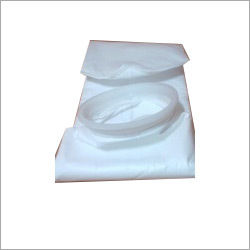
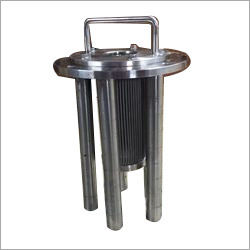
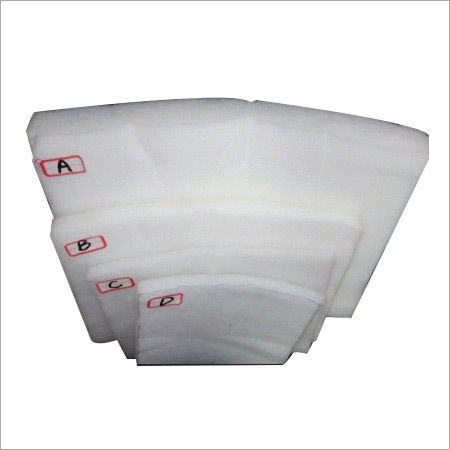
 Call Me Free
Call Me Free
